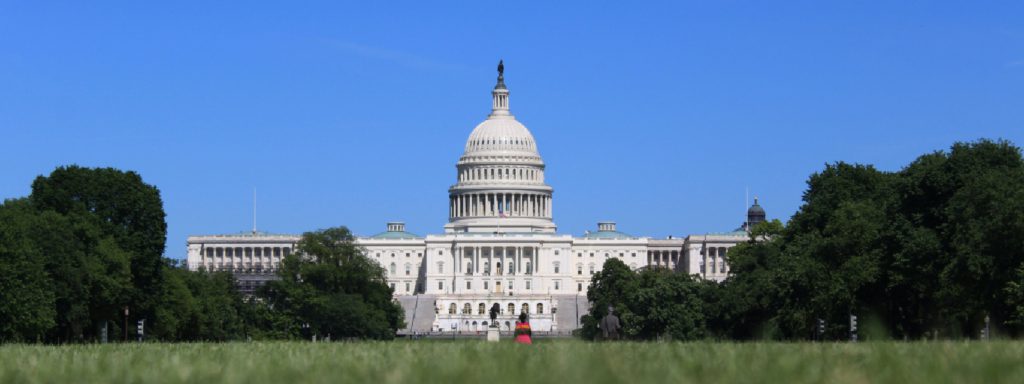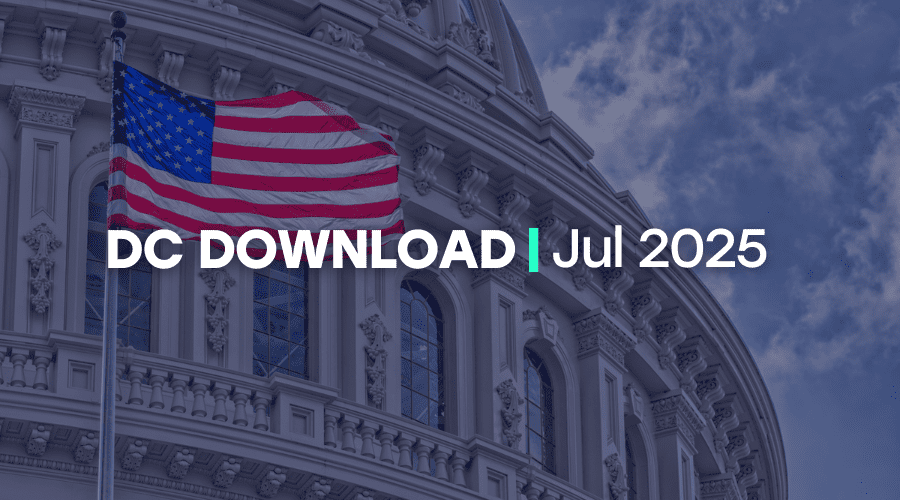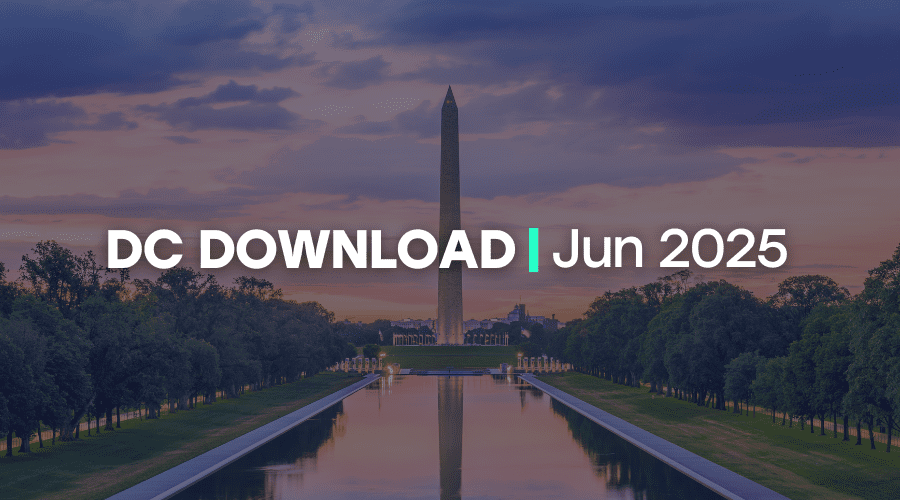July has turned out to be the hottest month of the year in DC, figuratively speaking, but also on the legislative side as negotiations began early this week for the next COVID-19 relief package. If you have not been following the latest issues on Capitol Hill affecting nonprofits, do not panic! Here is a brief overview of the latest legislative issues impacting nonprofits during these challenging times:
Senate Republicans release latest COVID-19 relief legislation
On July 27, 2020, Senate Republicans unveiled their latest proposal to confront the COVID-19 pandemic. Dubbed the Health, Economic Assistance, Liability Protection, and Schools (HEALS) Act, the long-anticipated bill is now the starting point for negotiations between Congress and the President. While the legislation bolsters the Paycheck Protection Program, offers improved unemployment insurance relief, and injects emergency funding into the 2020 Census, it falls far short of what the charitable sector needs to effectively serve communities. See a summary of nonprofit provisions in the HEALS Act.
Unemployment insurance guidance set for reversal
Earlier this month the House passed by unanimous consent the Protecting Nonprofits from Catastrophic Cash Flow Strain Act (S.4209), bipartisan legislation to help nonprofits, state and local governments, and federally recognized Tribes remain financially viable during the COVID-19 pandemic. At press time, the bill had been presented to the President for signature and is expected to be signed shortly.
Many nonprofits pay their share of unemployment taxes by reimbursing states for the unemployment benefits collected by their former employees. Recognizing that reimbursing employers would be unable to cover all of their unemployment costs amidst pandemic-related layoffs, the CARES Act allows these organizations to reimburse only 50 percent to the states while the federal government covered the other half.
Guidance issued by the Department of Labor in April, however, requires states to collect 100 percent of unemployment costs up front and reimburse them later, putting a further strain on organizations hit hard by COVID-19. The Senators’ bill would clarify that reimbursing employers are only required to provide 50 percent in payments up front. The net cost to the employer and the federal government would remain the same, but it would free up much needed money to help nonprofits stay afloat.
Main Street Loan Program updated for nonprofits
Earlier this month the Federal Reserve updated some of the eligibility criteria of the Main Street Lending Program (MSLP) for nonprofits, based on comments submitted by Independent Sector and other nonprofit organizations back in June. Unfortunately, the new loan terms still retain numerous financial restrictions that make the loan program unworkable to most organizations that are targeted for support.
A statement issued by the #Relief4Charities coalition, and signed by Independent Sector, says that the Main Street Lending Program will not work for nonprofits, and calls on Congress to ensure that mid-size nonprofits have access to loan forgiveness. Nonprofits with 500 or more employees were completely left out of the two most important sources of COVID-19 financial support: The Paycheck Protection Program (PPP) and the Federal Reserve Main Street Lending Program. And while some nonprofits will now be able to secure loans through the MSLP, its terms do not recognize the realities of their business models, and many of the financial requirements included would discourage, if not disqualify, them from applying.
Proposal to expand charitable giving gaining traction in Congress
Law360 reported positive feedback on the bipartisan Universal Giving Pandemic Response Act bill (S. 4032) to expand the current above-the-line deduction for charitable giving of $300 included in the CARES Act in March. This legislation would make available—for tax years 2019 and 2020—an above-the-line deduction for charitable giving on federal income taxes valued at up to one-third of the standard deduction (around $4,000 for an individual filer and $8,000 for married joint filers). This bill was introduced last month in the Senate by a bipartisan group of Senators, including James Lankford (R-OK), Chris Coons (D-DE), Mike Lee (R-UT), Jeanne Shaheen (D-NH), Tim Scott (R-SC), and Amy Klobuchar (D-MN). The companion bill (H.R. 7324) was introduced in the House by Representatives Mark Walker (R-NC) and Chris Pappas (D-NH).
Senate Finance Chairman Chuck Grassley (R-IA) said that the proposal was attracting interest as a potential component of the Senate GOP alternative to the HEROES Act. Whether the proposal is included in an emerging Senate GOP plan or not, Senator Lankford said he believed the bill would have strong bipartisan support for inclusion in any final bicameral package that could be assembled in negotiations.
“We’re pushing it, talking about it,” Senator Lankford told Law360. “It’s a significant need for not-for-profit groups all around the country, obviously. It’s for every American. And it incentivizes every rural nonprofit, every small nonprofit.”
“I am hopeful we will get an expansion of the charitable deduction,” Coons told Law360.
In the House, Rep. Mark Walker (R-NC) said he was trying to rally support for a companion bill with help from allies in both parties. “If anything should be bipartisan right now, this should be. That’s because many nonprofit charitable groups are going to be struggling,” Walker told Law360.
You can also support these efforts! Please take 60 seconds to send a letter urging your members of Congress to cosponsor this legislation.
#Relief4Charities week of action
A coalition of 30 national nonprofits hosted the #Relief4charities week of action on July 13-17th, to urge Congress to support policy proposals that would address nonprofits’ needs in the next round of COVID-19 relief legislation. The week included four congressional virtual briefings on a wide variety of topics, social media and a set of grassroots campaigns on each of these issues. Additionally, nonprofit organizations all over the country signed a letter addressed to Congressional leadership stating the issues that need to be addressed so nonprofits can continue serving their communities.
Throughout the week, the briefings engaged 500 people, including 100 congressional staffers. That week alone, a total of 18,896 action alerts were sent on all the issues combined to members of Congress. 4,576 advocates across the country participated in sending action alerts, which combined reached more than 1,142 staffers. The week of action also generated more than 2,800 social media posts.
Nonprofit infrastructure coalition writes to Senate leadership
22 nonprofit organizations recently wrote to Senate leadership as part of the newly formed Nonprofit Infrastructure Investment Advocacy Group, asking that they “remember the fundamental importance of community and civic structures” when crafting the next round of COVID-19 relief legislation. The July 13 letter requested funding to support administration of the 2020 election and the 2020 Census, as well as a significant federal investment in connected devices and home broadband connectivity.



